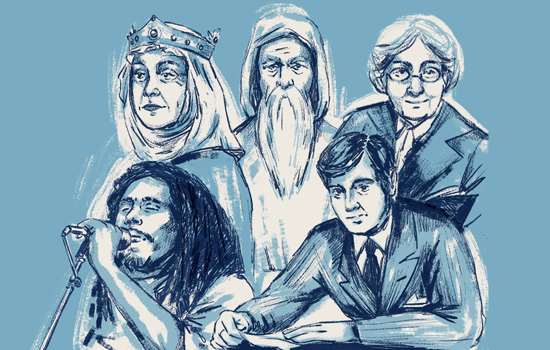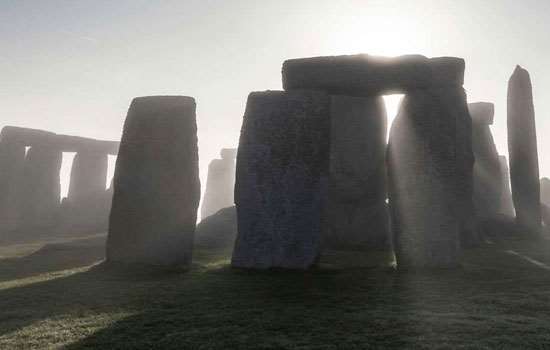Freddie Mercury’s blue plaque
We look back at the life of Queen's frontman, commemorated by a blue plaque at his childhood home in London
For those with vivid memories of his performance at Live Aid in 1985, it seems extraordinary that Freddie Mercury died over 30 years ago – and incredible that he would have turned 75 last September had he not become a casualty of the HIV/AIDS epidemic. More than just a frontman for the band Queen, he wrote many of their hits, including ‘Bohemian Rhapsody’, ‘We are the Champions’ and ‘Crazy Little Thing Called Love’.
Behind this success, and the glitzy stage name, lay Farrokh Bulsara, a young man who came to England as a 17-year-old in 1963 with his family – father Bomi, a cashier in the British colonial service, his mother Jer and younger sister Kashmira. They were East African Asians, and followers of the Parsi (or Zoroastrian) faith. The young Farokkh – or Fred, as he was already calling himself – was educated at boarding schools in India.
Their arrival in Britain is enmeshed with the wider story of the end of the empire. Zanzibar, a British protectorate since 1890, gained its independence in 1963 under a sultan, but was toppled a month later by an African-led revolution, partly triggered by a skewed election. Thousands were killed and many of the minority Asian population fled.
Although they were British subjects, the Bulsaras thus came to England effectively as refugees. They settled in Feltham, in London’s far west, where they had family connections: 22 Gladstone Avenue is the terraced house that bears Freddie Mercury’s English Heritage blue plaque.
Fred Bulsara studied art and graphics at Isleworth Polytechnic and Ealing College of Art, followed by a stint working at Heathrow Airport. He also joined his first bands – Ibex, later known as Wreckage, and Sour Milk Sea. Like many young adults, he was in and out of the family home, but was still giving it as his address in 1969. The following year he joined another band called Smile with Roger Taylor, Brian May and, later, John Deacon. At his instigation, they changed their name to Queen – and the superstar Freddie Mercury was born.
Words by Howard Spencer
Illustration by Simon Pemberton


